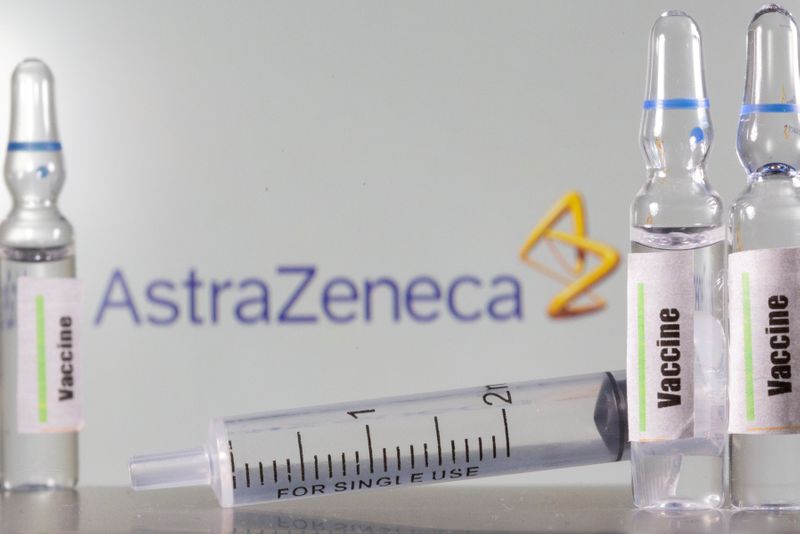This post was originally published on this site
https://i-invdn-com.akamaized.net/trkd-images/LYNXMPEGAI0DS_L.jpg
LONDON (Reuters) – A potential COVID-19 vaccine developed by AstraZeneca (NYSE:AZN) Plc and Oxford University produced a strong immune response in older adults, giving hope it may protect some of those most vulnerable to the disease, data from mid-stage trials showed.
The data, reported in part last month but published in full in The Lancet medical journal on Thursday, suggest that those aged over 70 – who are at higher risk of serious illness and death from COVID-19 – could build robust immunity to the pandemic disease, researchers said.
“The robust antibody and T-cell responses seen in older people in our study are encouraging,” said Maheshi Ramasamy, a consultant and a co-lead investigator at the Oxford Vaccine Group.
“The populations at greatest risk of serious COVID-19 disease include people with existing health conditions and older adults. We hope that this means our vaccine will help to protect some of the most vulnerable people in society, but further research will be needed before we can be sure.”
Late-stage, or Phase III, trials are ongoing to confirm the findings, researchers said, and to test whether the vaccine protects against infection with SARS-CoV-2 in a broad range of people, including people with underlying health conditions.
The first efficacy data from those Phase III trials is “possible in the coming weeks”, the Lancet report said.
The Oxford-AstraZeneca COVID-19 vaccine candidate, called AZD1222 or ChAdOx1 nCoV-19, had been among the front-runners in global efforts to develop shots to protect against infection with the novel coronavirus, or SARS-CoV-2.
But rival drugmakers Pfizer Inc (NYSE:PFE), BioNTech and Moderna (NASDAQ:MRNA) Inc have in the past 10 days edged ahead, releasing data from late-stage COVID-19 vaccine trials that shows more than 90% efficacy.
Unlike the Pfizer-BioNTech and Moderna shots, both of which use new technology known as messenger RNA (mRNA), the AstraZeneca experimental shot is viral vector vaccine made from a weakened version of a common cold virus found in chimpanzees.
The Phase II trial reported in The Lancet involved a total of 560 healthy volunteers, with 160 aged 18-55 years, 160 aged 56-69 years, and 240 aged 70 or over.
Volunteers got two doses of the vaccine or a placebo, and no serious side effects related to the AZD1222 vaccine were reported, the researchers said.
AstraZeneca has signed several supply and manufacturing deals with companies and governments around the world as it gets close to reporting results of its late-stage trials.

